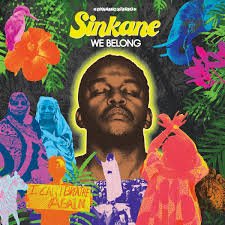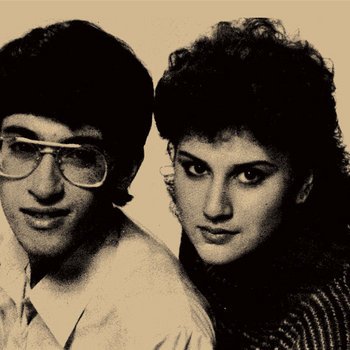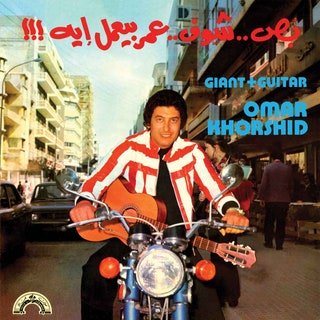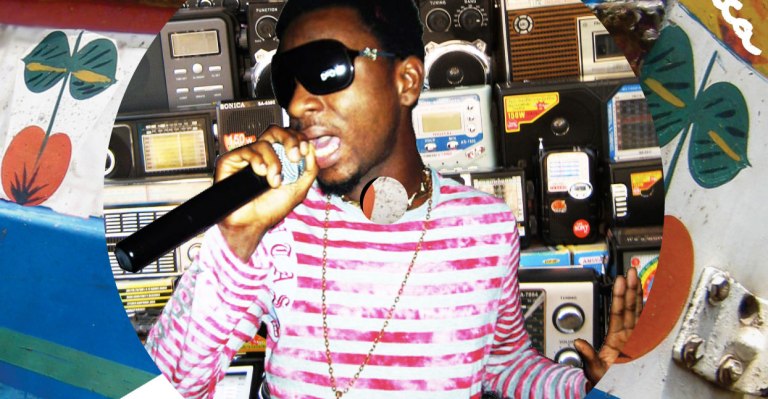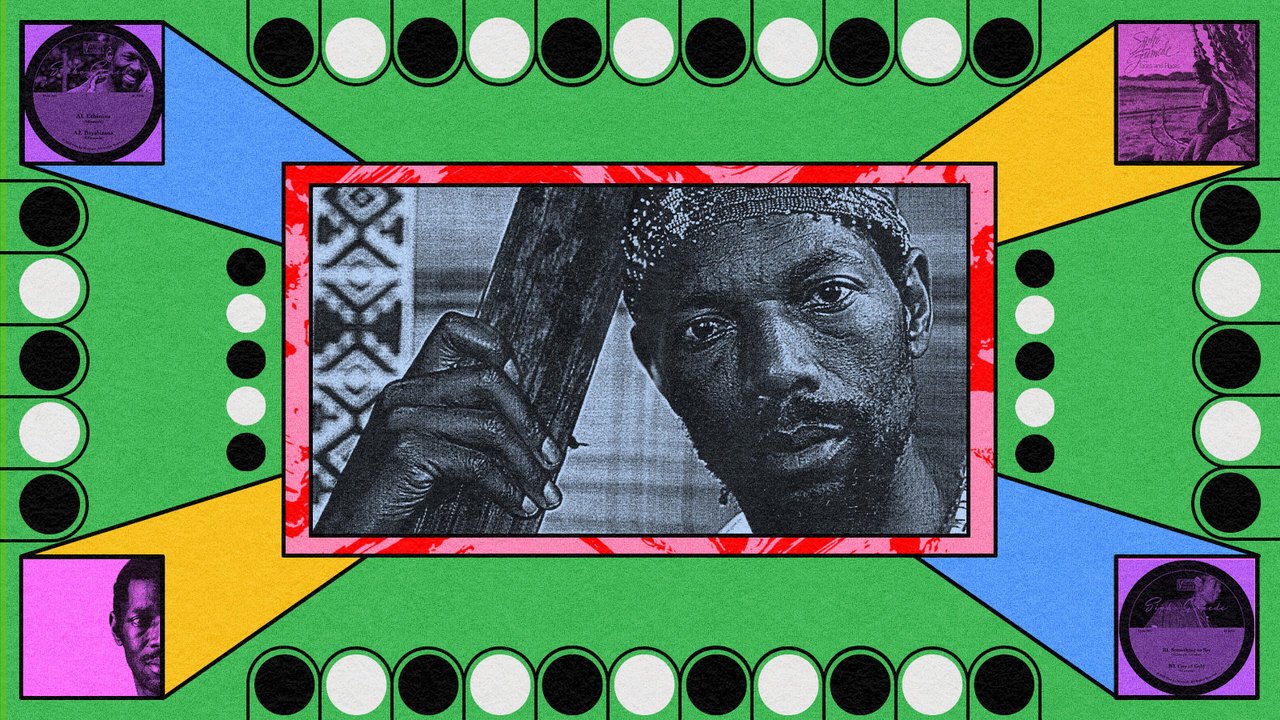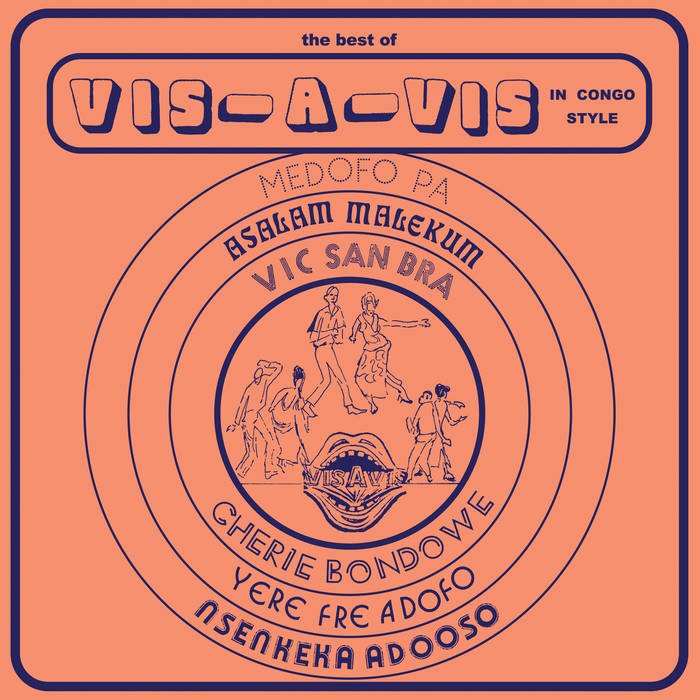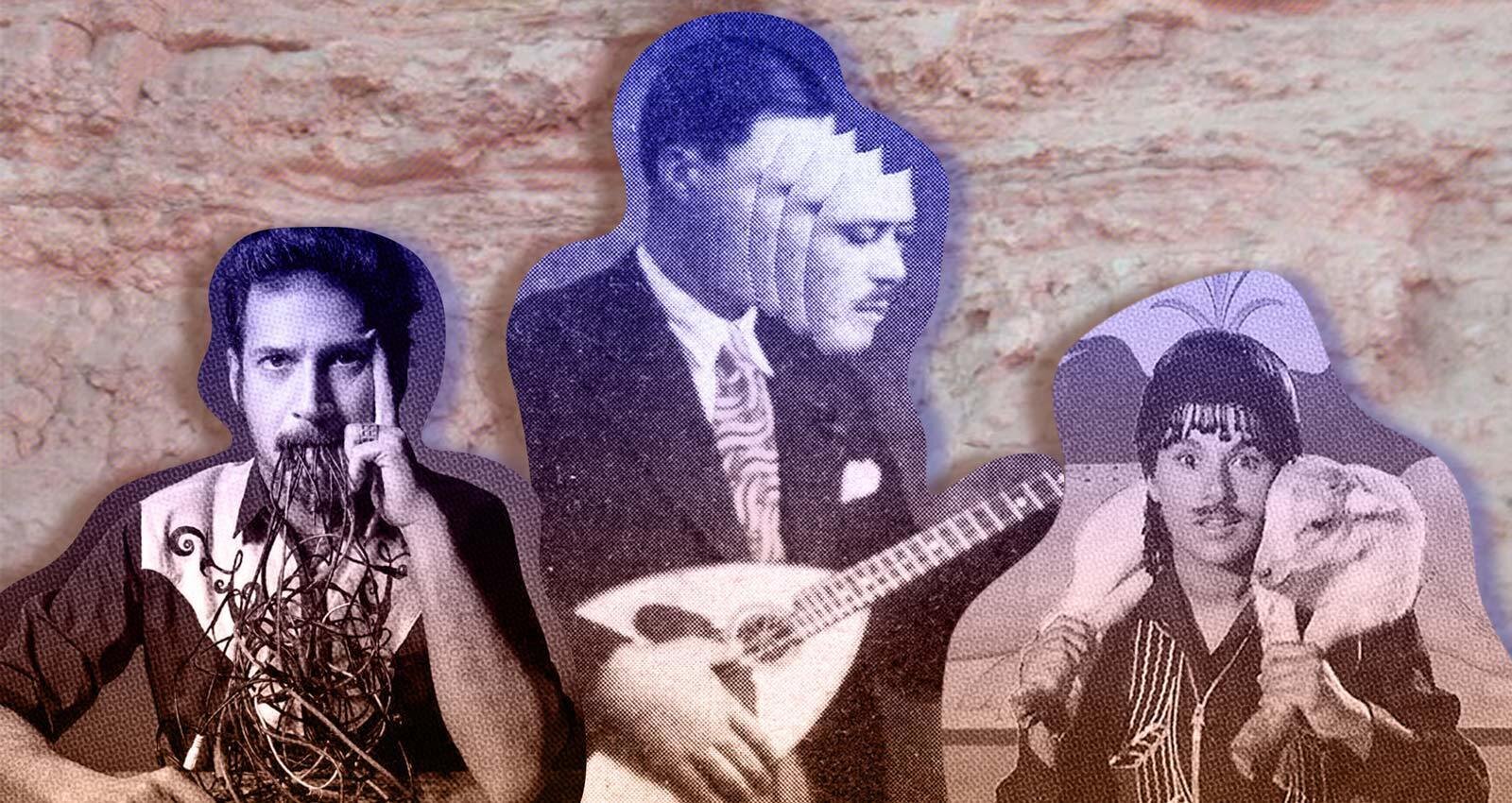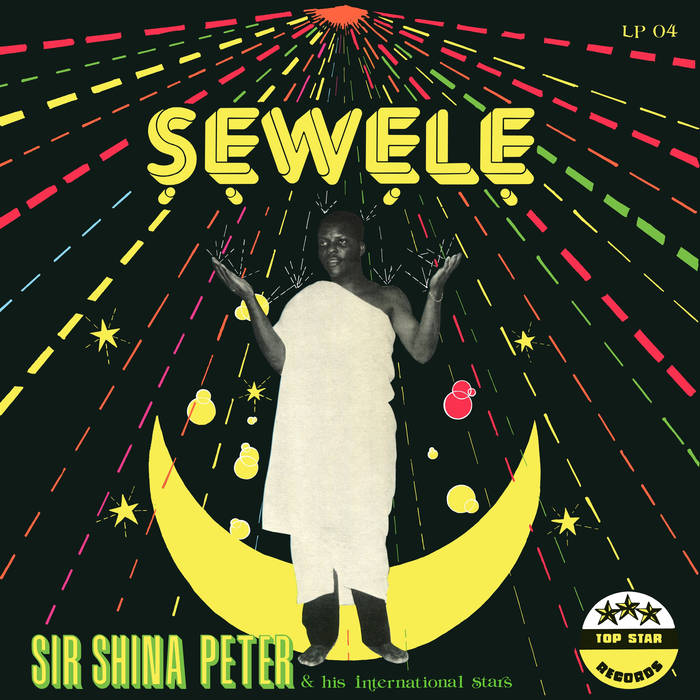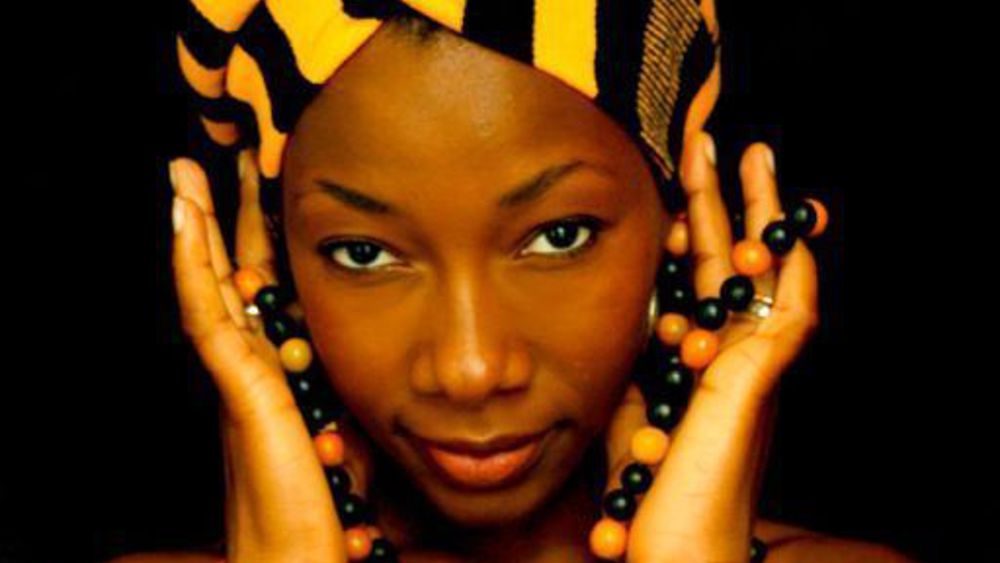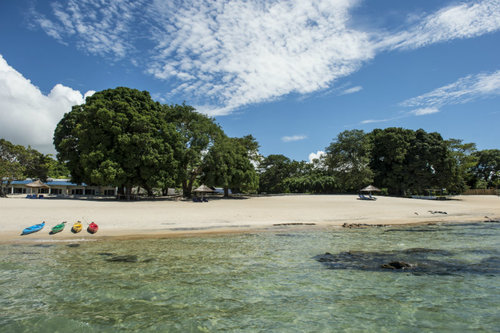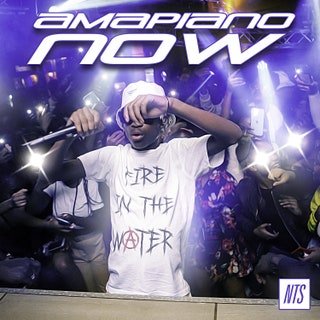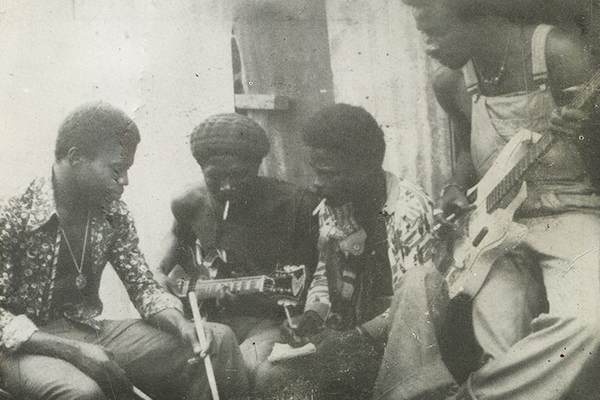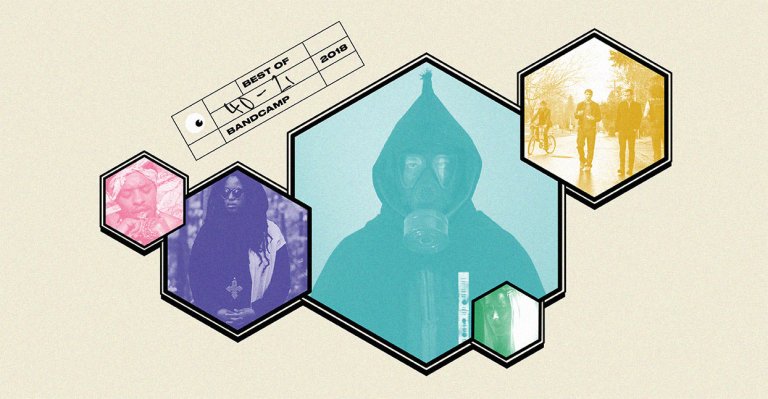Pitchfork Review: We Belong, Sinkane
On his new album, Ahmed Gallab, the Sudanese-born, New York-based multi-instrumentalist behind Sinkane, embodies the sense of deep pain and great joy that powers the sound of Black liberation.
Avalanche Kaito, “Talitakum”
After the release of their debut album in 2022, the Avalanche Kaito toured incessantly, and on Talitakum, they build on the collective, ritual energy of those live performances.
The Extraordinary Life & Music of Emahoy Tsege-Mariam Gebru
While Emahoy’s music has a very intimate feel to it, as if you were right there with her, it also weaves a broader narrative, intricately reflecting Emahoy’s eventful life and the most significant moments in Ethiopia’s 20th-century history.
The Guardian: ‘I’m not winning unless all of us are winning’: the Kenyan DJ programme promoting community and inclusivity
The Santuri Electronic Music Academy supports east African music producers, DJs and sound engineers trying to break into the industry, particularly encouraging female and queer artists
A Guide to Amadou & Mariam’s Eclectic Discography
Where Mariam Doumbia was influenced by Mali’s ancient jeli tradition, Amadou Bagayoko found inspiration in Jimi Hendrix, Pink Floyd, Led Zeppelin, and Eric Clapton. The duo’s music lies at the mesmerizing intersection of rock, blues, and Bambara traditions.
Supporting Ivory Coast’s Youth, One Collaboration At A Time
While many cross-cultural collaborations seek to find common ground and use perceived similarities as their foundation, Davorio reveals the dissonance that arises from the meeting between different musical cultures. “I tried to capture that collision and take a sort of sonic photograph of this journey,” says Samuele Strufaldi, the Italian composer, musician, and visual artist behind the record
On “INSHA,” Kenyan Artists Tell Their Own Stories
INSHA, a new compilation co-curated by Kenyan sound artist KMRU, explores these themes through 14 tracks by as many artists. “In primary school, there would be this class where we would have to write inshas, these stories in Swahili,” recalls KMRU, “and this is a collage of different stories.”
World Spirituality Classics 3: The Muslim Highlife of Alhaji Waziri Oshomah
For Waziri, enlightenment happens on the dancefloor. He was born in 1947 into a deeply religious Afenmai/Etsakọ family, and as a child he discovered the Nigerian highlife that was sweeping across Lagos at the time.
Five Essential Releases From quinn’s Adventurous Catalogue
Her latest releases have been warmer, more musical, and more deliberate. It’s the sound of an artist settling into her stride but without boxing herself in. Who knows where quinn will go next?
Album of the Day: Star Feminine Band, “In Paris”
Now aged between 12 and 18, Sandrine, Grace, Julienne, Anne, Angélique, Urrice, and Marguerite have gone from never having played music to releasing two albums and playing some of Europe’s biggest festivals, all in the space of six years.
Linda Ayupuka Is the Future of Fra Fra Music
Within seconds of Linda Ayupuka‘s album kicking off, the opening track’s bright synth flute, lolloping syncopation, and Ayupuka’s dazzling vocals combine to create an all-consuming vortex of sounds.
The Joyous Island Rhythms of São Tomé and Príncipe
São Tomé and Príncipe’s musical tapestry is a rich and complex one that has much in common with other African Lusophone countries, but is set apart by its own idiosyncratic elements.
SHFL Guide: Cuban Music in Africa
In the context of post-independence, Cuban music represented a viable alternative to Europe’s hegemonic models of “modernity.”
Album Of The Day: Teno Afrika, ”Where You Are”
Amapiano has broken into the mainstream to become one of the biggest international club sounds and Teno Afrika one of its better known representatives abroad.
Best of 2021: Future History: Nermin Niazi and Feisal Mosleh
Disco Se Aagay
Using techniques that were far ahead of their time, Disco Se Aagay draws on the siblings’s Pakistani heritage, combining the sweet poetry of ghazals with the New Wave sounds they loved.
Pitchfork Review, Omar Khorshid, “Giant + Guitar”
A new reissue of the Egyptian guitarist’s 1974 breakthrough showcases his virtuosic playing and groundbreaking blend of styles.
Kasai Allstars, “Black Ants Always Fly Together, One Bangle Makes No Sound”
Kasai Allstars’ new record Black Ants Always Fly Together, One Bangle Makes No Sound centers around the very idea that was the basis of their success all those years ago: that unity is strength.
Femi and Made Kuti Explore Their Family’s “Legacy” on Their New Double Album
When talking to Femi and Made Kuti, the two words that come up most often are “integrity” and “love.” The father and son duo are speaking over Zoom from their compound near Lagos to promote Legacy+, their newly released double album that includes Femi’s Stop the Hate and Made’s For(e)ward.
“Disco Se Aagay,” an ’80s Urdu-Language New Wave Classic, Gets a Long-Overdue Reissue
Disco Se Aagay isn’t just a bridge between different places: the record celebrates the cultures from which it comes, but also becomes its own thing, its own “place.” It’s the musical homeland that emerges when influences don’t run one way, when lines are blurred, and borders are transcended.
The Psychedelic Sound of Rüstəm Quliyev, King of Azerbaijani Guitar
Rüstəm Quliyev’s blazing, psychedelic guitar music sprang from one of the most tumultuous and transformative periods in Azerbaijan’s history, capturing both the spirit and the contradictions of its time. In the years since, Quliyev has become the emblem of Azerbaijan’s gitara music—a unique subculture that developed around the electric guitar
In the Songs of Lady Donli, Decades of Nigerian Music Collide
“I wanted to show people that there’s so much more to Nigerian music than Afropop,” says Donli. “We are so used to looking outwards for inspiration, but there is so much of it at home. And there is so much that has come before me, and even where I come from—my village has its own music scene.”
The Powerful, Political Music of Joseph Kamaru, Kenya’s King of Kikuyu Benga
Joseph Kamaru was only a teenager when he moved to Nairobi from rural Kenya in the late 1950’s, with a dream of one day becoming a musician. A quickly evolving city still a decade away from independence, Nairobi attracted musicians from all over East and Central Africa, and the sounds of Benga, jazz, Congolese Soukous, and Gospel could be heard blasting out from clubs and open windows.
Album of the Day: Miriam Makeba, “Pata Pata”
In this album, and throughout her career, Makeba stayed true to her culture, her conscience, and her integrity, while also introducing the world to the sounds of her continent.
Abum of the Day: AfricaExpress, “EGOLI”
More than a decade after the non-profit music collective began, Africa Express—a U.K.-based group helmed by Damon Albarn, frontman of bands Blur and Gorillaz—return with Egoli, an 18-track album that combines the diverse styles of South African music with electro-Acholi from Northern Uganda, London Afrobeat, and melancholy Welsh vocals.
A Journey to Ethiopia Inspired Hejira’s New LP, “Thread of Gold”
Ethiopia provided the starting point for the record, but Thread of Gold is also a broader reflection on issues of displacement, migration, and identity. (The band’s name is an Arabic term that means “migration away from danger towards a safer place.”) “It’s about our experience in a place that is unfamiliar to us,” says Beste, “and making sense of yourself in that reality.”
Album of the Day: Kel Assouf, “Black Tenere”
Black Tenere, by desert blues outfit Kel Assouf, is not so much a blistering record as it is a Saharan letterbomb: heavy guitars, fierce drumming, and hypnotically repetitive beats channeling the band’s anger in the face of injustice and colonialism.
The Best Albums of 2018: Basa Basa- Homowo
Ghanaian group Basa Basa got off to an auspicious start: their debut album was produced by Fela Kuti himself. But it was the group’s third album—an adventurous collaboration with producer Themba “T-fire” Matebese—that propelled them to cult status. 1979’s Homowo, reissued this year by the Vintage Voudou label, builds on Basa Basa’s rhythm-heavy sound with layers of ultra-modern keys and futuristic synths.
Akwaaba Music Spotlights the Alternative sounds of Africa’s Youth
From Ghana’s traditional seperewa harp music and Angola’s fast-paced kuduro, to Afrofuturistic Senegalese electronica and Bourkinabè hip-hop, the label embraces both traditional and experimental art, often straddling both worlds at once. Here’s a guide to the musicians who are shifting the perception of the Motherland’s sound
River Dancing: Nyege Nyege Festival Reviewed
In Uganda, on the banks of the Nile, Megan Iacobini de Fazio dives in to Tanzanian singeli, electro acholi and Ghanaian EDM.
Breaking Taboos in Zanzibar
Donning brightly coloured kangas and headscarves, several women take their place around a large, bright room, furrowing their brows as they tune their instruments. Vibrant laughter, the quivering sound of the violin, the rhythmic thumps of the percussion and the hypnotic hum of a female voice chaotically compete with each other, until the appearance of Mariam Hamdani in the doorway brings the cacophony to a halt.
The New Wave of East African Sound
“I hate when someone tells me I don’t sound African,” says Ukweli, the youngest member of East African Wave—or EA Wave for short. “What am I supposed to do, put Conga drums on all of my tracks? My music is African by virtue of me being African.”The 21-year-old is one-fifth of EA Wave—a group of five DJs and music producers who, over the last couple of years, have created a small scene in Nairobi around their style of electronic music: an amalgamation of trap, house, trip-hop, and downtempo beats.
Record Store Day at Jimmy’s, the vinyl man of Kenyatta Market
Last Saturday dozens of people made their way through the tight alleyways of Kenyatta Market, past the hair salons and through the nyama choma (roast meat) smoke to stall 570, where James ‘Jimmy’ Rugami set up shop in 1989. Young, old, Kenyan and expat alike filled the tight space by the stall, cradling cold beers as they browsed the hundreds of records on offer.
Addis Acoustic Project Revives And Globalizes Ethio-Jazz
In 2011 the band released their first album. The hour-long record perfectly encapsulates the theme which Mezmur had in mind during the band’s conception. Covering tracks which already gleaned sounds from places as diverse as Armenia, Sudan and Europe, and layering them with latin, jazz and folk influences, Addis Acoustic create an album which is timeless, global and yet undeniably Ethiopian.
Pitchfork Review: Erbil, Omar Souleyman
Erbil, his third full-length for Diplo’s Mad Decent (and one of over 500 albums overall, if you believe the lore), celebrates the new experiences and friendships that Souleyman encountered in Erbil.
Various Artists, “Congo Funk!: Sound Madness From The Shores Of The Mighty Congo River (Kinshasa/Brazzaville 1969–1982)”
Congo Funk!: Sound Madness From The Shores Of The Mighty Congo River (Kinshasa/Brazzaville 1969–1982), Analog Africa’s new compilation, zooms in on these two cities and their “Golden Years,” bringing to light the funkier sounds of the two Congos.
Ratigan Era, “Era”
Switching effortlessly between Luganda, patois, Spanish, and English, he sings and raps over a selection of throbbing, dancehall-rooted beats supplied by a who’s who of Hakuna Kulala’s producers.
Delasi, “The Audacity of Free Thought”
Delasi has never been one to bow down to expectations, either in the music industry or in society at large. His new record Audacity of Free Thought feels like a celebration of this steadfastness, a recognition that it is possible to triumph without compromising.
A New Compilation Highlights the Music of Afghans Living in Exile in Iran
The compilation, released by the Australian label Worlds Within Worlds, includes pieces by the descendants of Herat’s most important musical dynasties, including rubab player Nasim Khushnawaz, son of the late rubab master Ustad Rahim Khushnawaz.
How Producer Babsy Konate Shaped Gao’s Rap Scene
Baba “Babsy” Konate is one of the scene’s pioneers, and Sahel Sounds’s new release, Tounga, compiles over a decade’s worth of tracks that exemplify the Gao rap sound.
Sabiwa
On Island no.16 she harmonizes the folk music of the country’s various ethnic groups with her own distorted voice, deep drones, choppy rhythms, and natural sounds. The collision of ancient and modern dissolves the concept of time as we know it:
The Underrated Groove of South African Pioneer Sipho Gumede
Gumede first made a name for himself by mixing traditional rhythms and melodies with jazz and later with disco, boogie, and hip-hop. As a revered bass player, composer, and producer, he worked with South Africa’s music royalty, including Caiphus Semenya, Hugh Masekela, Letta Mbulu, and Abdullah Ibrahim;
Album of the Day: cktrl, “yield”
Drawing on the baroque tradition, cktrl uses contrast—between quiet and loud, vocals and instruments—to create drama and emotion, like on the sublime, almost 10-minute-long closer “marcescent.”
In 1970s Nigeria, Psychedelia and Resistance Went Hand-In-Hand
This is the fleeting moment in Nigeria’s musical history captured by Africa Seven’s release Afro Psych (Journeys Into Psychedelic Africa 1972 – 1977, which collects nine Afro-psych gems that exemplify the Lagos sound at that time.
Burger Highlife Was the Sound of the ’80s Ghanaian Diaspora
The compilation is the first of four, which bring together a total of 45 burger highlife tracks, including some by pillars of Ghanaian music like Pat Thomas and K. Gyasi and lesser-known artists such as Aban and Uncle Joe’s Afri-Beat.
Pierre Kwenders’ Pan-African Pop Gets Personal
Across the album, love is celebrated in all its forms, from the sensual to the familial to the love of one’s country. “That’s why it’s the paradox of love: through love, you can experience passion, anger, treason; it makes your heartbeat differently.”
SHFL Guide: African Stringed Instruments
While most instruments in Africa serve roles that go beyond simple entertainment, stringed instruments in particular have long played a role in maintaining oral traditions, preserving genealogies, and accompanying religious and ritual ceremonies
Album Of The Day: Vis-a-Vis, “The Best of Vis-a-Vis in Congo Style”
Vis-a-Vis depart from their trademark style and add a heavy dose of Congolese rumba to the mix.
Best of 2021: Future History: 4 Mars
Super Somali Sounds from the Gulf of Tadjoura
By moving the spotlight to this corner of the world and revealing this lesser-known yet extremely culturally-rich tapestry, Ostinato Records is helping pave the path for a new, less Western-centric history.
Pitchfork Review, Irreversible Entanglements, “Open the Gates”
On their latest album, the free jazz collective expands their palette to great effect, channeling the hopes of the past to demand liberation in the present.
Miriam Makeba, “Keep Me in Mind”
Produced by Lewis Merenstein, the album features soul covers of hits such as Van Morrison’s “Brand New Day” and “I Shall Sing,” alongside the percussion-driven “Down On The Corner,” originally by Creedence Clearwater Revival.
On “Kabul Fire Vol. 2,” Afghan Producer Farhot Remixes His Heritage
Kabul Fire Vol. 2 is a rich, nuanced collage of samples from Afghani films and documentaries, Dari poetry, and Pashto song, entwined with Farhot’s hip-hop beats, dramatic piano, and lush string orchestrations.
Album of the Day: Teno Afrika, “Amapiano Selections”
Born in the mid-2010’s from the creativity and resourcefulness of dozens of young bedroom producers in Gauteng’s townships, Amapiano quickly spread through WhatsApp and sharing platforms to become one of South Africa’s most relevant house music genres, whether on the airwaves or in the clubs.
On “At the Studio,” Zimbabwe’s Zonke Family Introduce Mapete Mbira to the World
“The disappearance of traditional music is a big blow to me,” says Boyi Nyamande, also known by his formal name Chief Goronga, from his hometown of Nyamapanda, in the northeastern corner of Zimbabwe. He and his brother Anthony “Matomati” Zonke are among the last remaining players of the matepe, a type of mbira typical of that region.
Meet the Artists Ushering Traditional Greek Music Into the Present
This is a familiar story in Greek music: the meeting of cultures, the assimilation and reinterpretation of musical traditions either giving birth to new art forms, or ensuring that traditions survive, albeit in new versions
Sahra Halgan’s Mission to Revive Music and Art in Somaliland
“My dream was to create a place where my people could come together, play, sing, laugh, and be happy,” says vocalist Sahra Halgan, the founder of Hiddo Dhowr, Somaliland’s first music venue since the collapse of a dictatorship in the early ’90s. “It’s a place where they can learn about their culture and be proud of it.”
Album of the Day: Sir Shina Peters, “Sewele”
Sewele, his 1986 album, marked a crucial change of direction for him: he was just starting out as a solo artist, experimenting with his sound, and trying to make his mark in the world of juju music. The record wasn’t a commercial success, and is often forgotten in discussions of Peters’ career. But it was an important time in the evolution of his sound.
How Dur Dur Band’s heady mix of funk and traditional Somalian rhythms defined an era
The subject of an extensive new reissue from Analog Africa, Dur Dur Band were one of the few privately run bands causing a stir on Mogadishu’s vibrant ’80s dancefloors. Lost for a generation, this is the story of Dur Dur Band’s mission to globalise Somali music.
A Guide to The Underground Scene in Accra, Ghana
“Accra is booming right now, there are a lot of things happening,” says Alex Wondergem, a beatmaker and visual artist based in Ghana’s capital city. “Now more than ever, there is new energy—this belief that it’s time to express yourself, to live by your art. Everyone is owning up to their craft and pushing for it and finding their voice, and for a place for art in society.”
Nyege Nyege Brings Underground African Music to the Shore of the River Nile
Most people hadn’t even set up their tents when the sky darkened and swelled, pregnant with the tropical deluge that within minutes would turn everything to mud and water. But even as the rain fell and thunder rumbled close by, the first arrivals gathered by the main and stage and kicked off their shoes, dancing in the rain, clothes and hair soon clinging to their skin
A word with Malian musician Fatoumata Diawara
The internationally acclaimed Malian musician tells Megan Iacobini di Fazio about the power of song and why ‘world music’ is just music from the world.
Nyege Nyege Tapes Spotlight Uganda’s Burgeoning Electronic Music Scene
Since 2013, Arlen Dilsizian and Derek Debru have galvanized Uganda’s electronic music scene, throwing parties and events with a focus on underground electronic music. “Dope underground music, that’s what we’re about. Just dope music,” says Dilsizian, an ethno-musicologist and co-founder of emerging Uganda-based label Nyege Nyege Tapes.
The Tanzania Albinism Collective Turn Personal Pain Into Emotional Soul
A delicate, hypnotic voice opens White African Power, the first album by Tanzania Albinism Collective, setting the tone for a record built equally on raw vocals, and lyrics that speak candidly of personal tragedy. “The world is hard, and I’m feeling defeated,” singer Christina Wagulu laments in Swahili. “Hatred, jealousy, and other emotions damage my heart / Disease weighs me down like defeat.”
Girum Mezmur
During a career spanning more than two decades, the 42-year-old musician has effortlessly experimented with an array of different styles, mastered a number of diverse instruments, and played with some of Ethiopia’s most renowned musicians.
Taking Stock of East Africa's Music Scene
New festivals championing alternative African music are popping up all around the region, young self-taught DJs are sampling traditional instruments, and secret Facebook groups are dedicated to the discovery of obscure music; there are workshops about finding an identity in East African music and about marketing oneself online, and events whose line-up include musicians from Uganda, Kenya, Tanzania and abroad.
Malawi’s Lake Of Stars Festival Returns To Its Roots
An eclectic mix of live music and DJs, palm-fringed white beaches, cold beer, hammocks, and some of the best stargazing in the world: can anything sound more appealing? These are only a few of the things drawing an ever-increasing number of music lovers to Malawi’s biggest music event, Lake of Stars.
Fatoumata Diawara: “It’s Up to Us to Bring Africa to the World”
The words power and music frequently come up in the same sentence when Fatou speaks. She believes that culture can be a strong force in the development of her beloved continent, and that musicians can have a wider and deeper impact than politicians, without the violence.
The Revolutionary Legacy of Oluko Imo’s Afro-Trinidadian Sound
Blending calypso heritage with the Afrobeat and jazz of Nigeria, Imo explored and reclaimed the Trinidad-Yoruba connection, and would go on to play regularly with none other than Fela Kuti, with whom he developed a close relationship.
Assiko Golden Band de Grand Yoff, “Magg Tekki”
For 20 years, the large drum collective has been entertaining crowds at celebrations, rallies, and underground parties, and their music is rooted in the multitude of cultures that co-exist in Grand Yoff, the sprawling working-class Dakar neighborhood where they are based.
Scene Spotlight: Moroccan Experimental Electronic Music
Away from the limelight and the headline-grabbing events that have turned Morocco into an international festival destination, a small experimental scene is quietly emerging in Casablanca, (and partially in Marrakech), driven forward by a small but active network of artists, independent labels, and art collectives.
Jantra, “Synthesized Sudan: Astro-Nubian Electronic Jaglara Dance Sounds from the Fashaga Underground”
All Jantra needs to whip up listeners into a frenzy is his trusty Yamaha keyboard, which has been modified by the “keyboard mechanics” of Khartoum market to reflect the tone of Sudanese music.
Voyageur: Ali Farka Touré
Voyageur, produced by his son Vieux and World Circuit’s Nick Gold, reflects this sense of freedom. Recorded between 1991 and 2004 during improvised jam sessions and concert rehearsals, the album’s nine tracks capture Touré’s life on the road, the warmth and naturalness of his collaborations, and his unswerving commitment to preserving the traditions of his homeland.
Desire Marea, “On The Romance Of Being”
Music’s healing qualities are a constant thread that runs through the record. In his work as a Sangoma (a traditional Nguni spiritual healer), Marea uses traditional songs and drumming to enter a trance state and become a gateway between the spiritual world and the living.
“Ears of the People” Brings Ekonting Songs from Senegal and Gambia to the World
Jules Diatta is one of Mlomp’s best-known musicians and leads a band called Sijam Bukan. His song “Mamba Sambou,” honoring a local wrestler, is the lead single off Ears of the People: Ekonting Songs from Senegal and Gambia, a new compilation on Smithsonian Folkways which explores ekonting music and its role in Jola culture.
Shfl - Anatolian Rock
The same strange alchemy that had given birth to Anatolian rock never really disappeared, simmering below the surface for almost two decades. Already in the 1990s some of the legendary 1970s bands began reuniting, and new groups like Baba Zula emerged to take up the baton.
How Pinky Ann Rihal Brought New Wave to South Asia
Their only album in this formation, 1985’s Tere Liye, is a one-of-its-kind South Asian New Wave record built around dramatic drum machine rhythms and layers of shimmering synths, with Barrett and Pinky Rihal singing in Hindi while Rihal and Sodhi’s guitars betray their rock background
Coco Em Instills Global Club Music With Kenyan Pride
For Coco Em, who grew up in Nairobi, Kilumi was a vital vehicle for exploring her Kamba background.
SHFL Guide: EthioJazz
The period between the 1960s and 1970s is known as Ethiopia’s Golden Era, marked by a profound musical openness, experimentation, and prolific production.
Best of 2021: Bodies in Motion: Cameroon Garage Funk
The compilation paints a picture of a true melting pot—rooted in its specific time and place, but open to the sounds that arrived via international airwaves and imported 45s.
Pitchfork Review, Various Artists, “Amapiano Now”
Curated by London DJs Shannen SP and Joe Cotch, this 17-track compilation takes the pulse of the quickly evolving South African genre built around log-drum grooves, bright synths, and jazz-inflected keys.
Album of the Day: Nahawa Doumbia, “Kanawa”
After celebrating Nahawa Doumbia’s storied musical career with two reissues over the past 10 years, Awesome Tapes from Africa delivers a brand new record by the leading lady of Mali’s Wassoulou music
Album of the Day: Makgona Tsohle Band, “Makgona Tsohle Reggi”
UK-based label Umsakazo Records continues to celebrate South Africa’s township sounds with the reissue of Makgona Tsohle Reggi, a collection of the Makgona Tsohle Band’s early hits originally released in 1970.
Album of the Day: Raúl Monsalve y los Forajidos, “Bichos”
Bass player Raúl Monsalve has spent years studying the music of Afro-Venezuelan communities, learning how to play their traditional instruments, and gaining a deeper understanding of their connections to other musical forms.
Album of the Day: Billy Brooks, “Windows of the Mind”
Trumpet player Billy Brooks’ name may not be embedded deep in music history, but he was central to the evolution of jazz-funk at the end of the 1960’s and early 1970’s.
“No Wahala” Spotlights Lesser-Known Music From Nigeria’s ’70s Heyday
The newly released fourth volume, No Wahala: Highlife, Afro-Funk & Juju 1973-1987, returns to the vibrant heyday of Nigerian music, but shifts the focus away from the Lagos scene to other regions of the country.
Album of the Day: Yoruba Singers, “Fighting for Survival”
It was 1971, and Guyana had only just become a Republic—it had achieved independence from its British colonizers in 1966. It was a difficult time, but also one in which the Afro-Guyanese people endeavored to rediscover their roots. It was against this backdrop that the Yoruba Singers began playing together.
Sonor Music Editions Rediscovers The Obscure World of Italian Library Music
But while there’s an air of mundanity around library music, it’s also been fertile ground for experimentation and creativity. And nowhere was this truer than in Italy in the 1970s, where avant-garde compositions, psychedelic guitars, futuristic synths, and brash horn sections became the signature sound of an era.
The Best Albums of 2018: Dur Dur of Somalia- Volumes 1, 2, & Previously Unreleased Tracks
Dur Dur Band were at the forefront of Somalia’s Golden Era—that vibrant period between the 1970s and late ’80s—but their music was almost lost forever. Thankfully, some of the original recordings survived: Analog Africa’s reissue combines Dur Dur’s first two albums, released in 1986 and 1987
The 12,000-Mile Road Trip That Captured the Sounds of the World
Paris to Calcutta: Men and Music on the Desert Road, released on Sublime Recordings on November 2, 2018, brings together Bhattacharya’s original diary, introductions from Millis and Jharna, and all the original recordings from the expedition.
Album of the Day: Moontribe, “Moontribe”
Moontribe, the first record by a mysterious artist who goes by the same moniker, opens with an insistent, high-pitched bleep, the pace of which steadily quickens until it reaches anxious alarm. It’s a fitting start to Moontribe’s heady, psychedelic record, where African rhythms, meandering electric organs, and tribal chants immerse the listener in what feels like some sort of esoteric outer space ritual.
Album of the Day: Dur-Dur Band, “Dur-Dur of Somalia – Volume 1 & Volume 2”
Founded in 1984 by keyboard player Isse Dahir Qassin, Dur-Dur Band’s music fused traditional Somali melodies with dance rhythms from all over the globe, from American funk and soul to Jamaican reggae. nThe band’s first two albums—released in 1986 and 1987 respectively, and reissued now via Analog Africa—capture the exuberance of Dur-Dur’s music, giving us a glimpse into the sounds of Mogadishu in the 1980s
South Korea’s Beatball Music is an Unlikely Mix of Jazz, Psych-Rock, Synth-Pop, & More
The music on South Korean label Beatball Music is an unlikely mix of psychedelic rock, garage-revival, synth-pop, movie soundtracks, Scottish prog-rock, acoustic punk, and spiritual jazz. It was founded in Seoul in 2002 by Bongsoo Lee, a record collector who envisioned Beatball as a way to release “old stuff from the 1960s and ‘70s from all over the world” to Korean audiences.
Heavenly Sweetness Releases Colorful Soul From All Over The World
And so, in 2007, Parisian label Heavenly Sweetness (named after avant-garde sax and flute player Byard Lancaster’s composition, produced by Rajon himself) was born with the intention of “spreading colorful music for the soul,” whether by unearthing and reissuing relatively unheard-of jazz records from around the world, or producing unusual new music by contemporary artists.
How Orchestre Les Mangelepa Changed the Course of East African Music
For over 40 years, Orchestre Les Mangelepa have been a dominant force in East Africa’s music scene, making people dance all across Congo, Tanzania, and Kenya with their energetic live performances and signature sound. They’ve helped evolve East African rumba—the musical art form that has come to define East Africa—and have kept it alive in Kenya’s busy capital, where they still play weekly gigs in local clubs.
Portico Quartet on the Future of Art in the Modern Age
We caught up with saxophonist Jack Wylie after a captivating performance at U.K.’s Womad Festival to talk about the album, their return as a quartet, and how automation doesn’t have to mean the end of art.
The Africa Seven Label is Reissuing Some of Africa’s Funkiest Jams
When London-based record collectors Rich Elson and John Bryan began work on digitizing the vast Sonodisc Catalogue—one of the largest label and distribution groups releasing Afro disco, funk, jazz, boogie and latin sounds—in 2012, all they had was a long list on a piece of paper. With no physical records or masters to speak of, they started tracking down the various records on the catalogue.
Kongoloti Records Offers Alternative Lusophone Music With a Dose Of Activism
The Mozambique-based record label Kongoloti Records is out to change that. The label takes contemporary music from Lusophone Africa—the melodic sounds of Northern Mozambique, politically-charged Angolan hip-hop, or J Dilla-inspired beats from Maputo—and brings it to the rest of the world. “We were intrigued by how much music from Lusophone Africa people really knew, so we started this journey,” says Milton Gulli.
The Vinyl Man of Kenyatta Market
Tucked away in the meat corner of the market is stall 570, where James ‘Jimmy’ Rugami has been selling music since 1989. Raising from an old record player, the sounds of rhumba and lingala waft through the air and mingle with the smoky aromas of roast meat. PHOTOS by Rachel Clara Reed
Sauti Za Busara live review
After a year-long hiatus, Sauti Za Busara is back. This year the festival happened across three stages, with the main one set up between the imposing walls of the 400-year-old Omani fort. The eclectic line-up featured traditional taarab groups alongside Ethiopian dub, Moroccan reggae, and psuchedelich rock from Seychelles to mention but a few.
